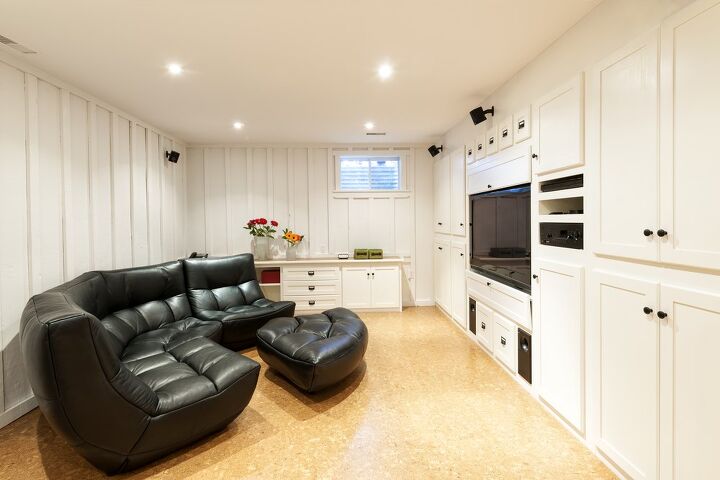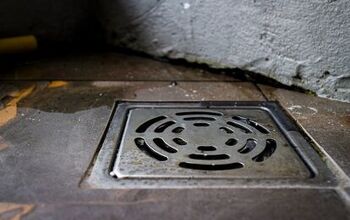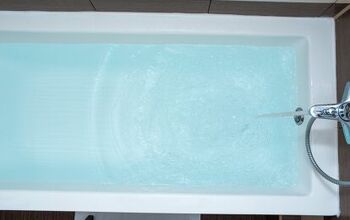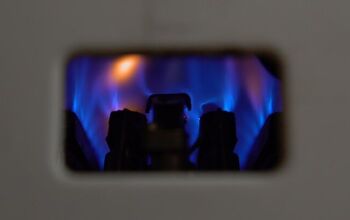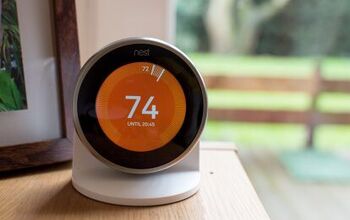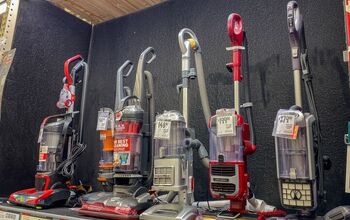Why Is My Basement So Warm? (Find Out Now!)

A warm basement isn’t what most of us hope for when we walk downstairs. A cool, dry basement is most often the ideal type of environment. So why is it that my basement is so warm, and how can I cool it and make it comfortable?
Possible causes of a warm basement include moisture, over-insulation, poor air circulation, air conditioning issues, and heat from electronic appliances. To cool a warm basement, you can improve ventilation, ensure proper insulation, and install additional air conditioning units. A few other options include extending your current HVAC system, using fans, and installing a mini-split air conditioning system.
In this article, we’ll cover the main causes of warm temperatures in basements. We’ll also include a few solutions for each of these causes. Then, we’ll go over several solutions for cooling your basement so that it’s no longer warm and uncomfortable.
Do You Need a Heating and Cooling Contractor?
Get free, zero-commitment quotes from pro contractors near you.

Causes Of Warm Temperatures In The Basement
To cool off the temperature in your basement, it’s important to first determine why it’s so warm to begin with. There are several potential reasons for the increasing temperature of your basement. These include moisture, over-insulation, poor air circulation, air conditioning issues, and heat given off by electronic appliances.
Moisture
If your basement is not only warm but also humid, moisture is likely the culprit. Some other signs that moisture is wreaking havoc on your basement include mold, mildew, and a musty smell. You may also see peeling paint, condensation, and deteriorating flooring.
What Causes Moisture In The Basement?Warm, humid temperatures in the basement caused by moisture can be resolved. However, you’ll first need to determine the source of the moisture. Are there any leaky pipes or cracks in the foundation that could be letting water in? Is the soil outside of your home saturated, or has it rained or snowed recently?
Poor grading can also result in water collecting around your home’s foundation and making its way inside. Ventilating the basement by opening the doors and windows can let in warm, moist air as well.
How Can You Fix Moisture In The Basement?Depending on the situation, a dehumidifier may be enough to resolve the moisture and warm temperatures in your basement. However, you may need to waterproof your basement in more extreme cases. This involves fixing cracks and leaks in the foundation. It can also consist of fixing the grading of the soil outdoors or installing a drainage system indoors.
Over-Insulation
Another reason your basement could be warm is that it’s too insulated. Basements have natural insulation thanks to the soil that surrounds them. Many homeowners over-insulate their basements.
What Causes Over-Insulation In The Basement?
Over-insulation happens because homeowners think they’re insulating their basements from the outside temperatures. In reality, basements only need to be insulated from the temperature of the soil, which is much warmer.
How Can You Fix Over-Insulation In The Basement?
It’s always best to contact a professional. They can evaluate the situation to determine whether your basement is over-insulated. The professional can then take action to adjust the insulation accordingly.
Poor Air Circulation
Another reason your basement might be warm is poor air circulation. Stagnant air tends to feel much warmer than air that’s circulating properly. Portable ventilation solutions like air purifiers and fans can help.
A more involved solution is to add more windows to your basement so that they can be opened for air circulation. You can also install a window air conditioning unit to cool off your basement even more. An exhaust fan with a ventilation pipe is another option to improve air circulation and lower the temperature of your basement.
Issues With Air Conditioning
What if you already have an air conditioning system in place, but your basement is still warm? The first thing you should do is make sure that the outdoor breaker fuse is positioned correctly. Check your electrical panel to see if there’s a tripped breaker as well.
Make sure your thermostat is switched on, look to see if the air filter is clogged, and check your condensate pump. If everything seems to be in order, then you’ll want to contact your HVAC expert to troubleshoot and manage the problem.
Dehumidifier And Other Electronic Appliances
When you have a lot of electronics running at the same time and creating heat, it can warm up your basement. This is especially true if you use multiple appliances and electronics in a basement with poor air circulation. Even a dehumidifier on its own can produce a considerable amount of heat.
How To Cool A Warm Basement
In need of a clear solution to cool down your warm basement? Read on for several effective options. These solutions range from improving ventilation and ensuring proper insulation to installing additional AC units and extending your HVAC system.
Improve Ventilation
Good ventilation is necessary for your HVAC system to work correctly. Improving the airflow in your basement is a great way to boost the air conditioning and cool the area. You can start by opening the windows in the basement, if you have any.
If just opening the windows isn’t sufficient, you can add window fans or window AC units. Another method of improving ventilation is installing exhaust fans. These exhaust fans will not only improve airflow, but they’ll also cut back on moisture in your basement.
Ensure Proper Insulation
Another way to cool your basement is to make sure it’s insulated properly. While being over-insulated can cause warm temperatures in the basement, improper insulation can have the same effect. Your HVAC system has to work much harder when the basement isn’t insulated correctly.
Subflooring and wall insulation should be enough to keep your HVAC from having to go into overdrive. It should make the task of cooling the basement easier, so the basement will remain cool rather than getting warm.
Install Additional AC Units
If your current air conditioning system isn’t cutting it, additional units may be the answer. However, this can be a big undertaking. You’ll need to make room for the supplementary units and install new circuits on your electrical panel.
Extend HVAC System
You can also cool your warm basement by extending your existing HVAC system. This definitely isn’t a DIY project, so be sure to contact an HVAC professional. They will be able to calculate whether or not your system can handle the extra square footage of your basement. This calculation is based on equipment, building type, and unit capacity.
If your existing HVAC system is up for the job, then contractors can extend the ductwork and install new vents in the basement. This step is ideally completed during a remodeling project so that the new ductwork can be concealed more easily.
Additional Cooling Solutions
If none of the other options appeal to you, there are some additional cooling solutions to consider for your basement. Ceiling fans and box fans are always helpful in cooling down warm areas. A mini-split air conditioning system is another option.
Do You Need a Heating and Cooling Contractor?
Get free, zero-commitment quotes from pro contractors near you.

Related Questions
Do basements stay warm in winter?
Since basements are naturally insulated by the surrounding earth, they tend to stay warm in winter. The better sealed your basement is, the warmer it’ll be during the winter months. Actively heating the space can also be helpful during the colder times of the year.
Why is my basement warm in the summer?
Poor air circulation is often to blame for a warm basement in the summer. You may also have issues with your air conditioning system.
What temperature should a basement be?
The ideal basement temperature in the winter is between 55 and 60 degrees. In the summer, it’s best to keep it below 80 degrees. This will keep humidity and mildew from becoming problematic.

With a lifelong passion for writing plus strong enthusiasm for home improvement and DIY projects, joining the team at Upgraded Home was an easy choice. Jessica Allen likes to share helpful information with current and aspiring homeowners. Aside from writing, Jessica loves doing yoga, playing the piano, and dabbling in graphic design.
More by Jessica Allen



